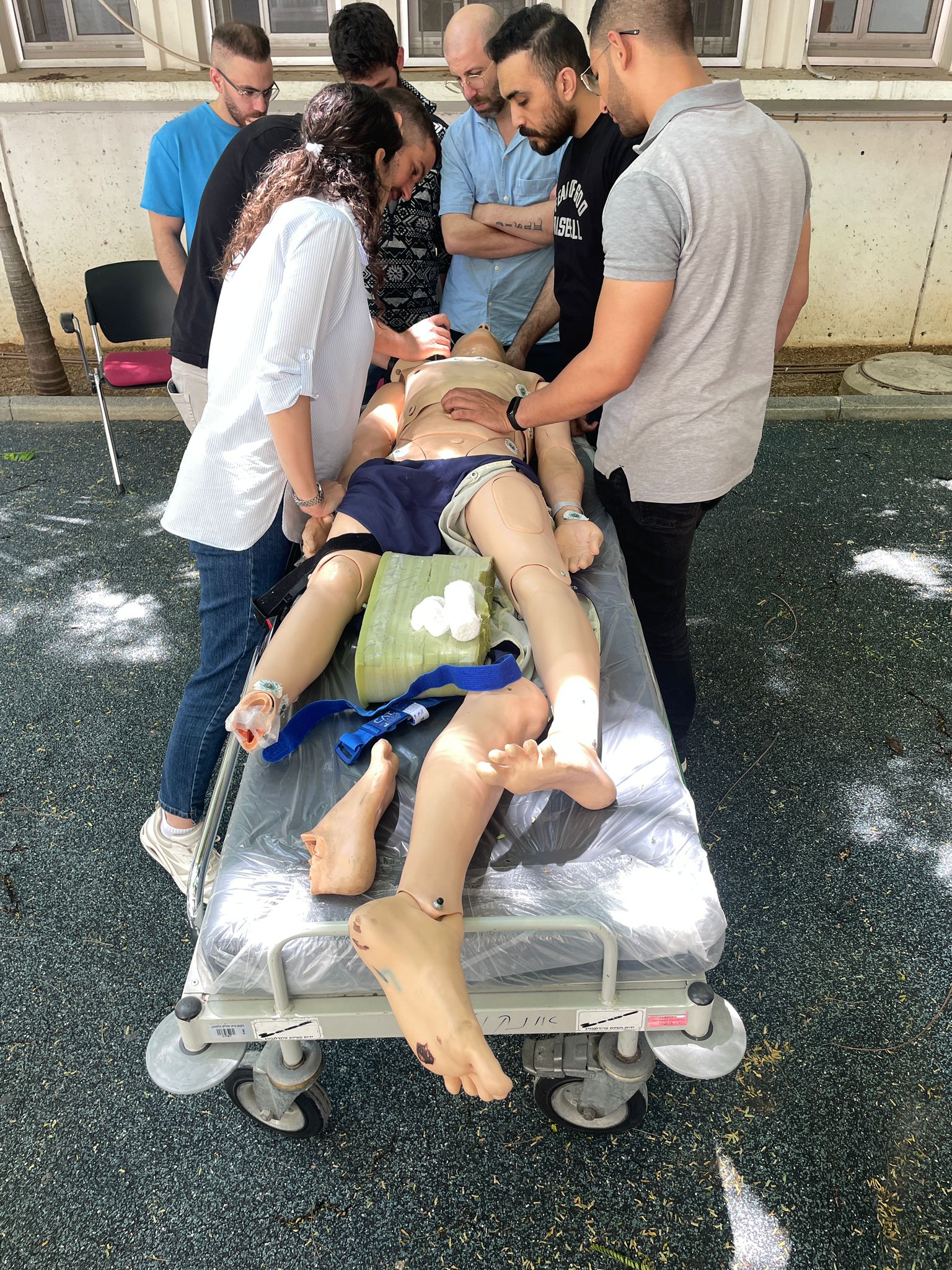
A joint ATLS seminar took place May 29-30, 2024, at Wolfson Medical Center. It was facilitated by Operating Together and funded by MEPPA/USAID
This is an extract from interviews with Dr. Jessica Toukan from Tel Aviv Medical Center, and Dr. Julie Al Hadweh from Al Makassed Hospital, East Jerusalem.
To what extent do you think that joint activities of this kind based on mutual self-interest promote and encourage health officials to reach out to their counterparts in Israel/Palestine to do this kind of work?
Dr. Al Hadweh: "It's very important and helps a lot, as we live together in the same country. It's crucial for us and the patients. If one day a patient needs something from an Israeli hospital, our colleagues will help us, and such courses open opportunities."
Dr. Toukan: "It's quite helpful if we manage to communicate with each other, especially for places that have fewer resources. We used to have a lot of patients from Palestine, from the West Bank and Gaza, and as long as there is communication, we can make it."
Do you think that the training outcomes and the cooperating networks established because of the training will be sustained?
Dr. Al Hadweh: "It may continue; it all depends on who you meet and your personal interest."
Dr. Toukan: "It will be sustained as long as patients need us, and they need all the resources we can give, or the other side can give; then it will be sustained."
What are the positive and negative aspects of these types of joint training?
Dr. Al Hadweh: "I recommend involving nurses, not only doctors, because we work as a team in the hospital. The location of the course is great, all facilities are here, and the instructors are amazing, very interactive, and respectful. A negative aspect is that the course is too short."
Dr. Toukan: "As long as we are getting educated and learning to meet new people and communicate with each other, especially in ATLS where communication is very important, there are no negative aspects."
How have recent changes during the war in the overall environment affected the program's implementation?
Dr. Al Hadweh: "In some periods, it was very hard for us and our families to let us come, especially in the beginning of the war, as no permits were issued, and you can't guess how the other side thinks. But now it's much better, easier, and more comfortable."
Dr. Toukan: "I don’t think it affected the implementation of the project. I do think that there is a lot of racism in the last several months on both sides, BUT in the medical world where we have a joint outcome, it didn’t affect us."
Out of 10, to what extent is the project relevant to you?
Dr. Al Hadweh: "9/10."
Dr. Toukan: "10/10."
What have you learned so far by being engaged in the program?
Dr. Al Hadweh: "Mutual respect is the title of the course so far."
Dr. Toukan: "I feel normal, and mutual respect is there, with no hate or staring. In the medical field, we all work for the patient, for the human being, and don’t look if you are Arab, Jewish, Muslim, Christian, or Druze. We look past these things."
Back to Newsletter